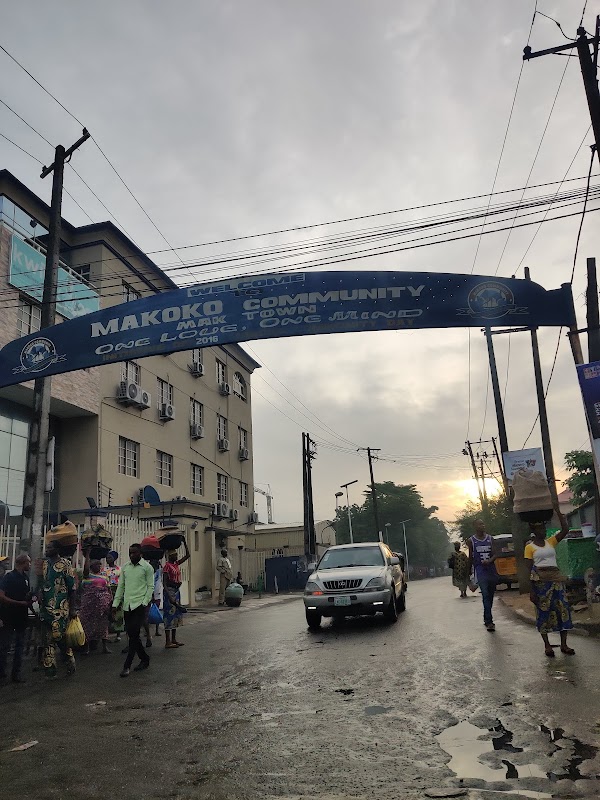
The Eyo Festival transforms Lagos Island into a vibrant parade of tradition and spirit, showcasing the captivating Eyo masquerades in an unforgettable urban adventure. Experience the striking costumes, commanding presence, and lively atmosphere while navigating the heart of Lagos’ historic streets.
Wear Comfortable, Sturdy Footwear
Expect long periods on your feet navigating crowded and uneven urban streets. Good shoes reduce fatigue and protect your feet during the procession.
Stay Hydrated Under the Lagos Sun
Carry bottled water; Lagos’ tropical heat can be intense, especially amid large crowds and midday sun exposure.
Arrive Early for Prime Vantage Points
Secure a spot near key procession points like Tafawa Balewa Square to get the best views of the masquerade.
Respect Cultural Sensitivities
Avoid obstructing the procession or taking intrusive photos, honoring the festival’s spiritual significance.
Eyo Festival: Lagos’ Vibrant Cultural Parade of Tradition and Thrill
Lagos bursts into color and rhythm when the Eyo Festival sweeps through its streets, a spectacle unlike any other in Nigeria. This festival, rooted deeply in Yoruba heritage, is both a public celebration and a solemn rite, marking important societal milestones and paying homage to departed souls. For travelers seeking a blend of lively culture and meaningful tradition, the Eyo Festival offers a vivid window into Lagos’ soul.
The festival centers on the masquerade of the Eyo — figures cloaked in flowing white agbadas, their faces hidden beneath wide hats and veils, carrying staffs that seem to command attention. These striking figures move through Lagos Island with purposeful grace, accompanied by the distant drumbeats and chants that ripple through the air. It’s a procession that demands respect; the Eyo are fierce, embodying ancestral spirits, and their movements tell stories of protection and power.
While not a hike through natural terrain, navigating the dense streets of Lagos during the festival offers a sort of urban adventure — winding through crowded lanes flanked by colonial-era architecture and buzzing markets. The festival’s core walk spans roughly 3 kilometers through Lagos Island, an area that challenges visitors to stay alert amid the ocean of participants and spectators. Footwear should be sturdy to navigate patches of uneven pavement and crowded gathering points. Stay hydrated as Lagos’ tropical climate presses down, particularly if attending under a midday sun.
Timing your visit is key. The Eyo Festival typically occurs sporadically, often once a year but rooted in tradition linked to royal events. When it unfolds, it’s usually for a single day, turning Lagos into a dense maze of color and sound. The best vantage points are near the prominent tails of the procession — places like the Tafawa Balewa Square or Broad Street — where the energy swells and the costumes display their finest detail.
Respecting the festival’s cultural significance is essential. Photographs are welcome but be mindful not to disrupt the procession or the community’s spiritual experience. The street vendors provide practical ways to immerse without losing comfort — light snacks, cold drinks, and local crafts offer touchpoints between visitors and locals.
For those hungry for an authentic dose of Lagos’ urban pulse, the Eyo Festival is an adrenaline-fueled cultural adventure. Prepare for crowds, embrace the noise and spectacle, and walk with an eye for tradition alive and fiercely present in every whirl of the agbaada and beat of the drum.
Nearby Trips
All Adventures
Boat Charters
Water Activities
Adventures near Lagos, Nigeria
Discover the unique and memorable adventures that make Lagos, Nigeria special.
Frequently Asked Questions
What is the significance of the white agbada costumes in the Eyo Festival?
The white agbada worn by Eyo masquerades symbolize purity and connection to ancestral spirits. Each costume is unique, representing different families or regions, and the white veil conceals the identity, reinforcing their sacred role as spiritual intermediaries.
Is the Eyo Festival open to tourists, and can anyone attend?
Yes, the Eyo Festival is a public event and tourists are welcome to watch and participate respectfully. However, some rituals are private, and spectators should maintain distance and respect local customs.
How often does the Eyo Festival occur?
The festival is not on a fixed schedule but typically happens once a year or linked to significant royal or community events. Dates are announced through local channels, so planning requires some flexibility.
Are there local foods or drinks recommended during the festival?
Street vendors offer popular Lagos snacks like puff-puff (fried dough balls), suya (spiced grilled meat), and cooling drinks such as zobo (hibiscus tea). Sampling these adds flavor to your festival experience.
Where can I best view the Eyo procession with fewer crowds?
While main locations like Tafawa Balewa Square are popular, upstream points near Lagos Island’s Marina area offer slightly less dense viewing spots without losing the energy of the festival.
Are there any environmental concerns or regulations for attendees?
Lagos encourages cleanliness during public events. Dispose of waste responsibly as large crowds produce significant litter; local authorities often provide bins but carrying a small trash bag helps minimize impact.
Recommended Gear
Sturdy Walking Shoes
Supportive shoes protect your feet on urban surfaces and through dense crowds.
Reusable Water Bottle
Keeping hydrated is crucial in humid, hot conditions with prolonged standing.
Lightweight, Breathable Clothing
Wear clothes that allow airflow and wick sweat to stay comfortable in Lagos heat.
Portable Phone Charger
Ensure your phone stays powered for photos and navigation during long festival hours.
Local Insights
Hidden Gems
- "The ‘Ojude Oba’ Shrine near the procession route, an often unnoticed cultural site."
- "Historical colonial-era buildings lining Broad Street, providing a photographic backdrop."
Wildlife
- "Street-level birdlife such as the Nigerian Pigeon and Barn Swallow, common near waterfront areas."
History
"Eyo originated as a festival exclusive to the Lagos royal family, used to escort kings and chiefs, and to symbolize continuity between the living and the ancestors. It blends spiritual rites with public display, preserving Yoruba values."
